
The International Marine Conservation Congress (IMCC) represents one of the most important international meetings for marine conservation professionals and students. IMCC4 was recently held in St. John’s Newfoundland and Labrador between 30 July – 3 August 2016, building on from the success of Glasgow in 2014 and bringing together conservation professionals and students from across the globe. A key ambition for the conference is to develop new tools and foster collaborations that will further marine conservation science and policy.
The overall theme of IMCCs is:
“Making Marine Science Matter”
For marine conservation to be effective, marine conservation science must genuinely matter to stakeholders, policy makers, and practitioners. To try to accomplish this, the IMCC congresses are generally organized around specific topics of interest for marine conservation, or as topics relevant to specific places.
In addition to the regular conference proceedings, IMCC4 also witnessed the inauguration of “#OceansOnline”, a full day of Making Marine Science Matter through online communication and the use of other online resources. Here delegates participated in hands-on training workshops tailored to beginners, and facilitated discussion panels hosted by experts in their fields.
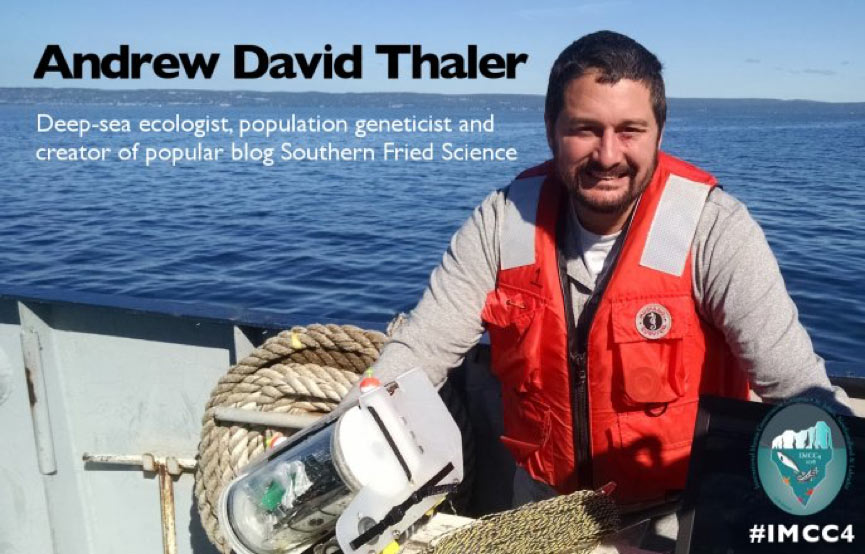
Marine Science and Conservation Consultant Andrew Thaler was one of the plenaries – check him out at www.OceanographyforEveryone.com and at @SFriedScientist on Twitter.
#OceansOnline is a first of its kind, and from a personal perspective it provided a platform for discussion on how internet tools can help marine scientists and conservation professionals with research, education and outreach. Something which is at the very heart of what we are trying to achieve with Project Seagrass and our SEA Program (Seagrass, Education, Awareness).
Sessions about how and why we should talk about success in marine conservation and avoiding the pessimism trap gave us reason to pursue an outlook of #OceanOptimism. As well as ‘making waves inland’, the challenge for ocean literacy in land-locked locations – something that we should really not struggle with in the Britain, and yet we do, as we are never more than 70miles from the coast!
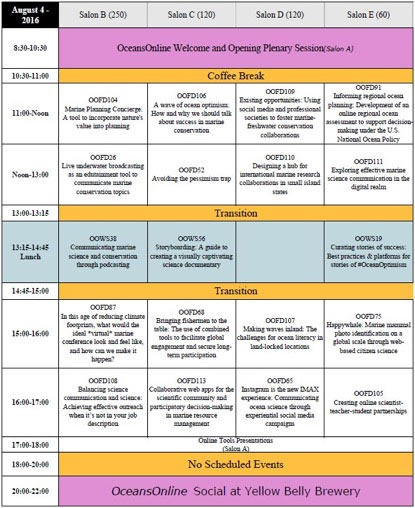
#OceansOnline help bring together the online ocean community, facilitating new collaborations and pioneering new technologies.
It was through #OceansOnline that I was directly involved, and proud to be. Inspirational colleagues from both academia and the fishing industry (see below) have made the point previously that policies about marine resource use of often decided in the absence of key stakeholders, and in particular with main fishermen feeling voiceless and ignored. This feeling is one that I can directly relate to from my work with the Lipsi Fishermen’s Association in Greece. Here I have worked with a group of fishers heavily reliant on the fisheries provision of their coastal seagrass ecosystems (Posidonia oceanica) and yet as a group they feel powerless to effect change in the regional fisheries management structure.
So the idea was to run a workshop on “Bringing fishermen to the table” using online “Bambuser” technology. A simple concept, yet one that marks a pretty important development considering a lot of commercial fishermen (from both developed and developing countries) cannot attend conferences like IMCC4 or other such events.
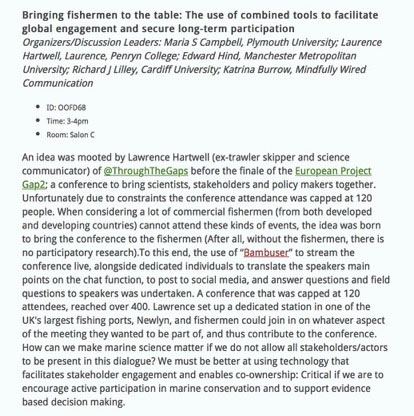
If the fishermen can’t come to the conference then the conference can come to the fishermen!
As you can see from the screenshot below the Bambuser platform provides a livestream video feed and a chat function, allowing fishermen, scientists and policy makers to discuss issues around a virtual table. Whilst use of this technology is in its infancy for marine collaboration and communication, with the rapid developments in global internet speeds and connectivity, we all see online tools such as Bambuser as the future in providing essential communication channels between stakeholder groups.
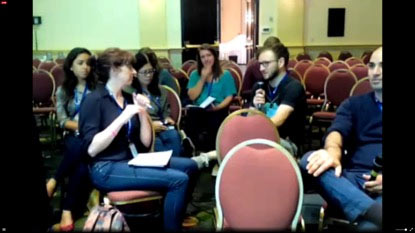
If the fishermen can’t come to the conference, then the conference can come to the fishermen!
Whilst there may have been teething problems during the session (sound and stream quality in some locations), the general feedback we have received has been overwhelmingly positive.
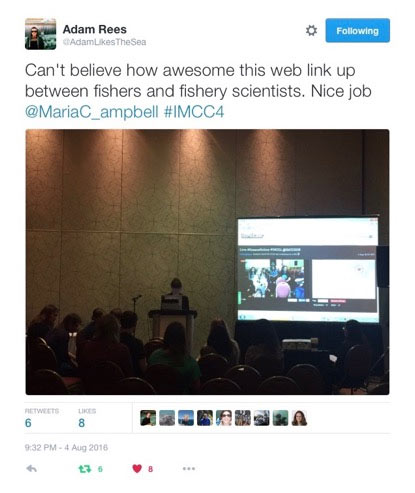
The feedback was overwhelmingly positive about the session.
We hope the session provided an example of what can be achieved for our oceans ‘online’, and that we see more use of online technologies to bridge the gap between stakeholders and provide a platform for discussion for marine resource management.
Well that’s me for now.
Until the next time!

